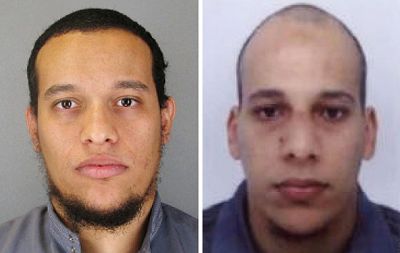
Accusations of an ‘intelligence failure’ often follow terrorist attacks such as the tragedy in Paris last week, it’s important to remember that intelligence has a finite value.
As often seems to happen in the wake of a terrorist attack such as the tragedy in Paris last week, questions are soon asked about what the security services knew in the run up and if the attack could have been prevented.
It’s often the case that where there was prior information held about the participants or the plot, the first of these questions is ‘Could the attack have been prevented?’
Debriefing in the aftermath is always an important part of the response as identifying shortcomings may help prevent a future attack, when intelligence is considered though there needs to be an understanding of its value to help appreciate ‘intelligence failings’ in context.
It’d be a mistake to think that intelligence represents what is ‘known’ – intelligence existing suggesting a person has links to terrorism or giving details of a plot does not amount to knowledge, it really only serves as a suggestion.
We grade intelligence on source and reliability, both very subjective and hard to judge with any degree of accuracy. Intelligence helps paint a picture, how accurate that picture is and what may be missed is difficult to say.
Information can be provided maliciously, it can also be presented in great volumes meaning decisions have to be made about how to prioritise and respond to a variety of competing concerns that incoming intelligence may alert security forces to.
This ‘noise’ means security services may have had information about dozens of potential plots, have intelligence on hundreds of potential terrorists, but without a specific reason for doing so will struggle to justify further investigative action.
There’s been talk recently about new legislation to give us more powers to collect communications data, the value of these powers would likely be that it’d help us to better judge where to focus our resources by helping us build a clearer picture.
The powers are controversial though the demand tight scrutiny – whatever their final form they are likely to represent an extension of our powers to access private communications hence the critical term ‘Snooper’s Charter’ used to describe them.
What it is important to remember is that whilst good intelligence is needed in the fight against terrorism, its value is finite, not absolute.
Even were intelligence budgets to be expanded tenfold and new ‘Big Brother’ legislation introduced to all but erase personal privacy, there would still be terrorist plots that would succeed.
The question is, how much more effective can our intelligence capabilities realistically be made and might we pass a threshold where we end up restricting civil liberties in pursuit of an efficiency that cannot be achieved?
P.S. The report published by Parliament on the intelligence surrounding the death of Drummer Rigby is a particularly interesting insight into how intelligence is used and the problems that face the intelligence services, it’s definitely worth a read if you’d like to know more about the subject.
